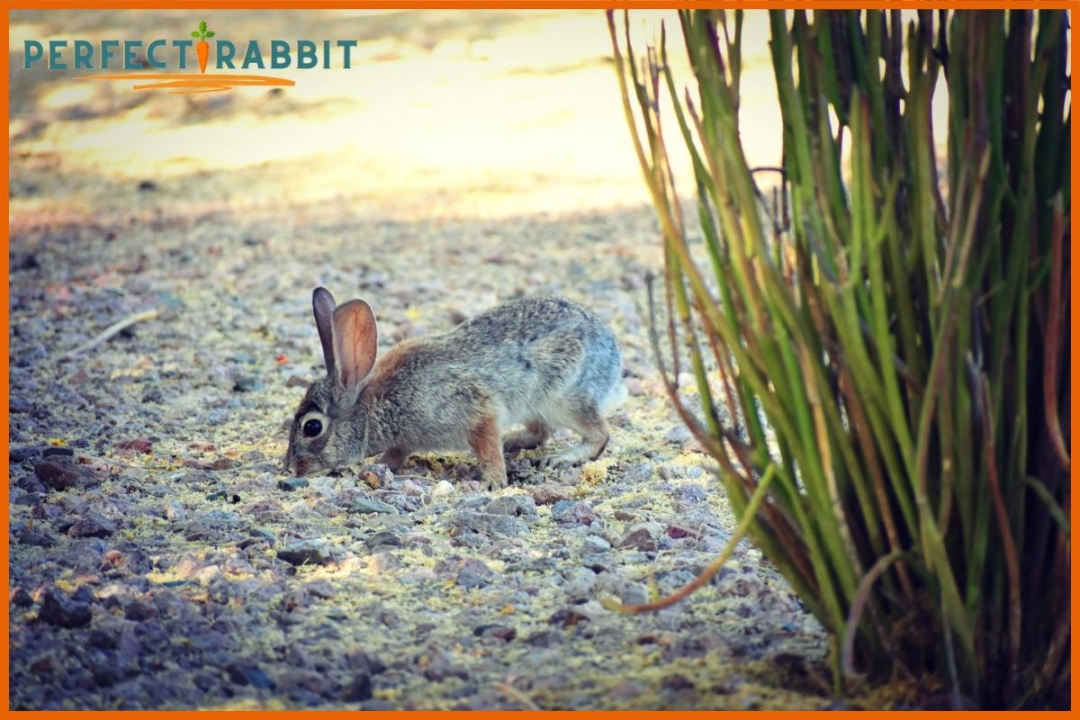Can Rabbits Get Salmonella From Lettuce?
Rabbits are popular pets known for their love for leafy greens, and lettuce is commonly included in their diet. However, concerns about foodborne illnesses, such as salmonella, may arise when it comes to feeding lettuce to rabbits. Here, we will explore whether rabbits can get salmonella from lettuce and discuss the potential risks associated with it.

Understanding Salmonella
Salmonella is a type of bacteria that can cause food poisoning in humans and animals, including rabbits. It is commonly found in raw or undercooked meat, eggs, and unpasteurized dairy products. Salmonella infections in rabbits can lead to various symptoms such as diarrhea, dehydration, loss of appetite, and in severe cases, even death.
The Safety of Feeding Lettuce to Rabbits
Lettuce is generally considered safe for rabbits to consume, and it is a common ingredient in their diet. However, it is important to take certain precautions to minimize the risk of salmonella contamination:
- Wash the lettuce thoroughly: Before feeding lettuce to your rabbit, make sure to wash it thoroughly with clean water to remove any potential bacteria or pesticides.
- Choose fresh and crisp lettuce: Opt for fresh lettuce that is free from rot or discoloration. Avoid using lettuce that has been sitting at room temperature for too long, as it may increase the risk of bacterial growth.
- Avoid wilted or spoiled lettuce: Rabbits should only consume fresh and healthy lettuce. Discard any wilted or spoiled leaves, as they can harbor harmful bacteria.
Reducing the Risk of Salmonella Contamination
While lettuce itself may not be a common source of salmonella, it can become contaminated during the production, handling, or storage process. To reduce the risk of salmonella contamination, consider the following:
- Proper food storage: Store lettuce in a clean and dry environment, separate from raw meat, eggs, or other potential sources of contamination.
- Proper handling: Always wash your hands thoroughly before and after handling lettuce or any other food items. This will help prevent cross-contamination.
- Refrigeration: Keep lettuce refrigerated at temperatures below 40°F (4°C) to slow down bacterial growth.
- Time limitations: Avoid leaving lettuce out at room temperature for extended periods, especially in warm environments, as this can promote bacterial growth.
Important: Salmonella can be present on the surface of lettuce, so it is crucial to handle and prepare it with caution to minimize the risk of contamination.
FAQs about Rabbits and Salmonella
1. Can rabbits be carriers of salmonella without showing symptoms?
Yes, rabbits can be carriers of salmonella without exhibiting any symptoms. They can shed the bacteria in their feces, potentially contaminating the environment.
2. Can rabbits transmit salmonella to humans?
Rabbits can transmit salmonella to humans through direct contact with their feces or by handling contaminated objects. It is important to practice good hygiene, such as washing hands thoroughly after handling rabbits or cleaning their living areas.
3. Are there any safe alternatives to lettuce for rabbits?
Yes, there are several safe alternatives to lettuce for rabbits, including kale, spinach, cilantro, and parsley. These greens can provide a variety of nutrients and help prevent dietary monotony.
4. What are the signs of salmonella infection in rabbits?
The signs of salmonella infection in rabbits may include diarrhea, dehydration, loss of appetite, lethargy, and weight loss. If you notice these symptoms, it is important to seek veterinary care promptly.
Conclusion
In conclusion, while rabbits can contract salmonella, the risk of getting it from lettuce is relatively low if proper precautions are taken. Washing lettuce thoroughly, selecting fresh and crisp leaves, and storing it properly can help minimize the risk of bacterial contamination. It is essential to maintain good hygiene practices when handling rabbits and their food to reduce the chances of salmonella transmission. By following these guidelines, you can safely include lettuce in your rabbit’s diet while ensuring their overall well-being.
Related Articles…
Copyright Notice:
This website utilizes images found online, all copyrights are retained by their original owners. If you would like an image removed, kindly contact us.